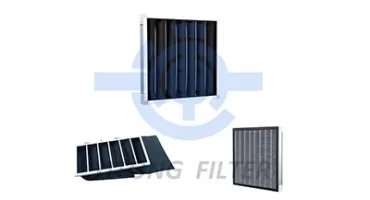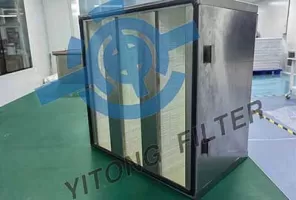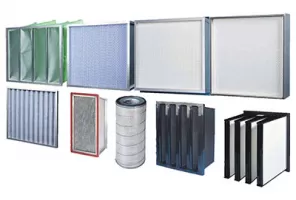 March 08, 2024
March 08, 2024
In the realm of healthcare, maintaining pristine air quality is paramount to safeguarding patient well-being and preventing the spread of infectious diseases. At the forefront of this endeavor stands the Medical Grade HEPA (High Efficiency Particulate Air) filter—a technological marvel engineered to purify the air within medical facilities to the highest standards. In this article, we delve into the intricate workings of these filters, their applications, and the pivotal role they play in upholding health and safety standards.
Medical Grade HEPA filters are meticulously designed to trap airborne particles as small as 0.3 microns with an efficiency of 99.97%. This exceptional filtration capability is achieved through a multi-layered structure consisting of randomly arranged fibers, typically composed of fiberglass. As air passes through the filter, contaminants such as bacteria, viruses, allergens, and other particulate matter are effectively captured, thereby mitigating the risk of airborne transmission of pathogens within healthcare settings.
One of the primary applications of Medical Grade HEPA filters lies in ventilation systems within hospitals, clinics, laboratories, and other medical facilities. These filters are integrated into HVAC (Heating, Ventilation, and Air Conditioning) systems to ensure that the air circulating within enclosed spaces is constantly purified. By continuously removing harmful particles from the air, Medical Grade HEPA filters contribute to maintaining a sterile environment conducive to patient recovery and medical procedures.
Moreover, Medical Grade HEPA filters play a critical role in specialized medical settings such as operating rooms and isolation units. In these environments, where the risk of contamination is particularly high, the implementation of HEPA filtration systems is imperative. By effectively removing airborne pathogens, these filters reduce the likelihood of surgical site infections and nosocomial transmission of diseases, thus safeguarding both patients and healthcare personnel.
The significance of Medical Grade HEPA filters extends beyond medical facilities to encompass various other sectors where air quality is of paramount importance. From pharmaceutical manufacturing facilities to cleanrooms used in electronics production, these filters are instrumental in maintaining stringent cleanliness standards and ensuring product quality.
In light of the ongoing COVID-19 pandemic, the importance of Medical Grade HEPA filters has been further underscored. With the airborne transmission of the virus posing a significant threat, the installation of HEPA filtration systems has become a cornerstone of infection control measures in healthcare facilities and public spaces alike. By capturing viral particles suspended in the air, these filters serve as a frontline defense against the spread of COVID-19 and other respiratory illnesses.
In conclusion, Medical Grade HEPA filters represent a pinnacle of engineering excellence in the realm of air purification technology. Their unparalleled efficiency in removing airborne contaminants makes them indispensable in healthcare settings, where maintaining clean and sterile environments is paramount. As we continue to navigate the challenges posed by infectious diseases, the role of HEPA filtration in safeguarding public health remains indispensable.
 Jul. 18, 2023
Characteristics and Precautions of Activated Carbon Filters
Jul. 18, 2023
Characteristics and Precautions of Activated Carbon Filters
 Dec. 25, 2024
Box Type HEPA Filter
Dec. 25, 2024
Box Type HEPA Filter
 Mar. 11, 2024
Enhancing Indoor Air Quality with HVAC Vent Filters: A Comprehensive Guide
Mar. 11, 2024
Enhancing Indoor Air Quality with HVAC Vent Filters: A Comprehensive Guide